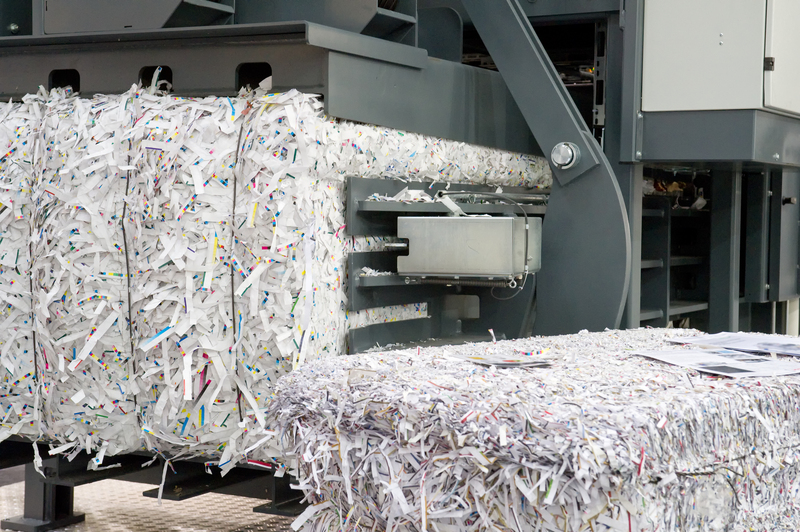Lower Your Bulky Waste Removal Costs With These Suggestions
Are you overwhelmed by sky-high bulky waste removal expenses? Disposing of large and heavy unwanted items can put a serious dent in your budget, whether you're decluttering, renovating, or moving. The good news is, there are several practical ways to reduce your bulky waste collection costs and even turn unwanted items into opportunities. Read on for actionable advice to help you manage large waste disposal effectively and economically.

Understanding Bulky Waste and Why Disposal Gets Expensive
Before delving into specific money-saving tips, it's important to recognize what constitutes bulky waste and why it often comes with higher disposal fees than regular household trash.
- Bulky waste typically includes large items such as sofas, appliances (white goods), mattresses, garden furniture, carpets, and construction debris.
- These items are often too big or heavy for your regular waste collection service.
- Special handling, transportation, and landfill charges make their removal especially costly.
Why Are Bulky Waste Removal Costs High?
Several factors contribute to the elevated price tags:
- Labour and transport: Bulky items require extra manpower and larger vehicles.
- Landfill fees: Many bulky goods are unsuitable for recycling, attracting premium landfill taxes.
- Hazardous components: Items like old fridges contain chemicals, necessitating specialist disposal.
1. Audit and Sort Your Bulky Waste First
The most effective way to start saving on large item removal is by understanding exactly what you have and separating your waste into distinct categories. Careful sorting of bulky waste helps you avoid overpaying for items that could be reused, recycled, or handled separately.
- Make an inventory of all bulky items you need to dispose of.
- Group items into categories: reusable, recyclable, hazardous, and true landfill waste.
- Prioritize easy-to-move items first to minimize loading time (labor costs).
- Keep an eye out for items in good condition that could be donated or sold.
2. Sell or Donate Usable Bulky Items
One of the best ways to lower bulky waste disposal expenses is by making sure reusable items never enter the waste stream at all. Ask yourself: "Can someone else use this?"
How to Sell Your Bulky Items
- Use online marketplaces like eBay, Facebook Marketplace, Craigslist, or Gumtree.
- List items in local buy/sell groups, which often attract fast pickup and cash offers.
- Mention "buyer to collect" so you avoid moving or delivery costs.
Donating for a Good Cause (And Free Removal!)
- Reach out to local charities, shelters, or reuse social enterprises--many offer free collection for larger items.
- Popular options include furniture banks, The Salvation Army, Habitat for Humanity, or local churches.
- Tip: Always check each organization's requirements for donations (they usually only accept gently used, clean items).
By diverting bulky items out of the waste stream, not only do you save money, but you support your local community and help the environment.
3. Take Advantage of Local Authority Collections
Did you know your local council or municipality might offer discounted or free bulky waste pickups? This option is vastly cheaper than private collection services but comes with limits on frequency or quantity.
How Council Bulky Waste Collection Saves Money
- Find out how many free or subsidized pickups you're entitled to annually--visit your local authority's website.
- Combine your disposal efforts with neighbors to maximize each collection slot (where allowed).
- Follow the council's bulky waste preparation guidelines to avoid penalty fees for incorrect items.
Important: Council collections may not take certain items (like hazardous appliances or construction debris), so always check their exclusions.
4. DIY Bulky Waste Removal: Haul It Yourself
If you have access to a large vehicle (like a van or pickup truck), self-disposal is one of the most effective methods to cut large waste disposal costs. Here's how to do it right:
- Locate your nearest authorized waste transfer station, recycling center, or landfill.
- Check opening hours and restrictions before you go.
- Sort loads by type in advance to increase the chances of free recycling (especially for metal, electronics, and wood).
- Bring proof of residence, as many council facilities are reserved for locals and household (not commercial) waste.
Costs: Many recycling centers accept household bulky waste for free or at heavily reduced rates. Compare these to the charges by private haulers, which can be substantial!
5. Partner With Neighbors For Shared Collection
Teaming up with others in your street or apartment block is an ingenious way to split bulky item pickup costs. Private collection firms usually charge based on vehicle space or per load; sharing a collection means a cost-friendly group rate for everyone.
- Coordinate with neighbors and agree on a date for joint removal.
- Book a single bulk pickup slot for multiple households (some companies even offer discounts for combined bookings).
- Ensure everyone abides by the disposal guidelines to avoid fines or surcharges.
Benefits of Collective Waste Removal
- Major cost savings--sharing the fixed call-out fee substantially reduces individual expenses.
- Lower carbon footprint--fewer vehicle trips, less traffic congestion, better for the environment!
- Easier logistics--all items removed at once; less hassle for everyone.
6. Break Down and Compact Items Where Possible
Did you know that many bulky waste removal companies charge by cubic yardage or the volume taken up in the truck? Disassembling and flattening items ensures you're not paying to haul empty space.
- Disassemble beds, wardrobes, and large furniture into smaller pieces.
- Flatten boxes and remove detachable components.
- Bag up small parts to prevent item loss or mess.
Squeezing more into each load lowers your total bill and, in some cases, even lets you skip an entire extra trip!
7. Avoid "Cowboy" Waste Collectors
The temptation of ultra-cheap, cash-in-hand "man with a van" services can be strong, but beware: using unlicensed operators can be extremely risky and end up costing you more in the long run (including possible legal fines).
- Verify that your waste removal service is properly licensed and insured.
- Ask for a waste transfer note--a legal requirement in many countries.
- Illegal dumping could leave you liable for steep fines if traced back to you.
Insist on Documentation
Always ask for written confirmation of what's being collected and where it's going. Responsible bulky waste collectors should have no problem providing paperwork.
8. Compare Multiple Quotes and Negotiate
If you need a private junk removal firm, get a minimum of three quotes from reputable waste companies. Having price options gives you bargaining power and ensures you are not being overcharged.
- Use online comparison tools or review platforms for feedback.
- Negotiate--mention competitive quotes and see if companies will match or beat them.
- Clarify what's included: Labor, VAT, additional surcharges, stair carries, etc.
Tip: Some removal companies offer lower rates for off-peak collections or for regular customers--never hurts to ask!
9. Upcycle or Repurpose Bulky Items
Don't be afraid to get creative! Bulky waste doesn't have to be wasted. With a bit of vision, old items can have a new lease on life--and save the money and hassle of paid removal.
- Turn wooden pallets into garden planters or outdoor furniture.
- Convert old doors or cabinets into shelving units.
- Use broken tiles or ceramics for mosaic projects.
- Check YouTube or Pinterest for endless upcycling inspiration.
This approach not only saves on bulky waste collection costs but also promotes sustainability and adds personal value to your space.
10. Stay Informed About Local Recycling and Waste Disposal Regulations
Lastly, keep up to date with your local rules and upcoming initiatives regarding large item disposal. Many communities run free amnesty events, appliance buy-back schemes, or seasonal cleanouts that allow for cheap--or free--bulky waste drop-offs.
- Sign up for council newsletters, social media updates, or local bulletin boards.
- Watch for "bulky waste drop-off days" or community recycling events.
- Use these opportunities maximally--schedule your clear-out to coincide for greatest savings.

Summary: Smart Ways to Lower Your Bulky Waste Removal Costs
- Inventory and sort your waste to separate out what can be reused, recycled, or must go to landfill.
- Sell or donate unwanted but usable items to offset costs or benefit your community.
- Utilize all free or subsidized council collection services available to you.
- Self-haul to official waste and recycling centers whenever practical.
- Combine removals with neighbors for shared discounts on private collections.
- Break down large items to reduce volume (and your bill).
- Avoid illegal or unlicensed operators to prevent costly legal consequences.
- Always compare, negotiate, and verify what you're paying for with reputable companies.
- Upcycle or creatively reuse to avoid disposal altogether.
- Stay informed about local programs and regulations for savings opportunities.
Conclusion: Save Money, Protect the Planet
Bulky waste is a challenge for many households, but with the right approach, you can drastically reduce your large item disposal costs--and make a positive environmental impact. Whether you're moving house, decluttering, or tackling a renovation, these strategies can spare your wallet, minimize landfill usage, and maybe even put a few extra pounds or dollars back in your pocket. Next time you face a mountain of unwanted furniture, appliances, or other large items, remember: disposing of bulky waste doesn't have to be expensive--if you know how to do it smartly!
Lower Bulky Waste Collection Costs: Frequently Asked Questions
- Can I leave bulky items on the curb?
Only if it's your scheduled bulky waste collection day and permitted by your council. Illegal dumping can incur hefty fines. - How do I know if a collection service is licensed?
Ask to see proof of registration or check government databases for approved carriers in your area. - Are mattresses and fridges more expensive to remove?
Yes, because they contain hazardous components or are hard to recycle. Shop around for specialist removal or recycling schemes.
For more tips on reducing bulky waste removal charges, check your local authority's website or consult registered waste professionals near you.